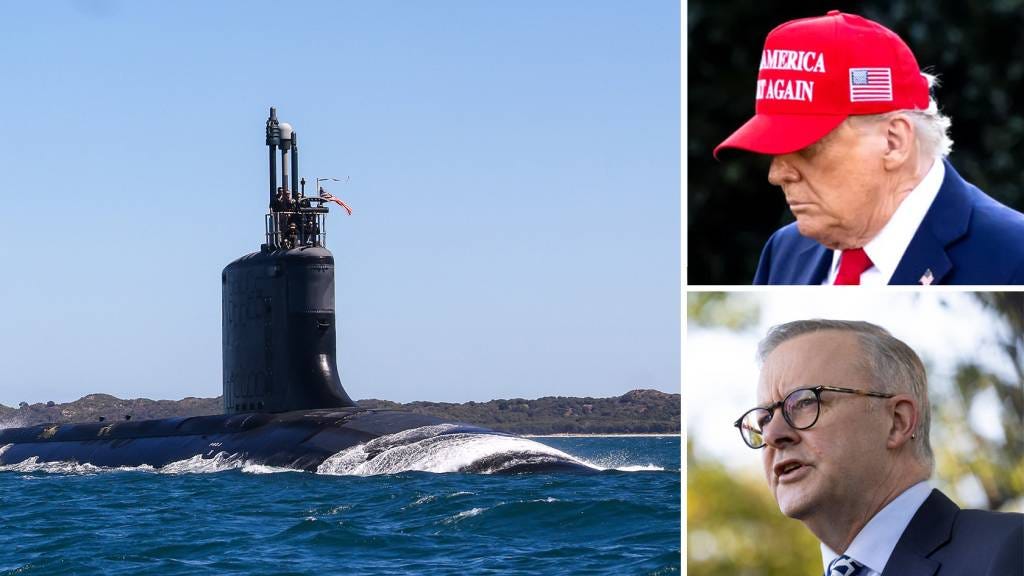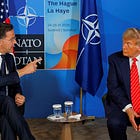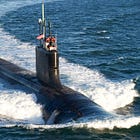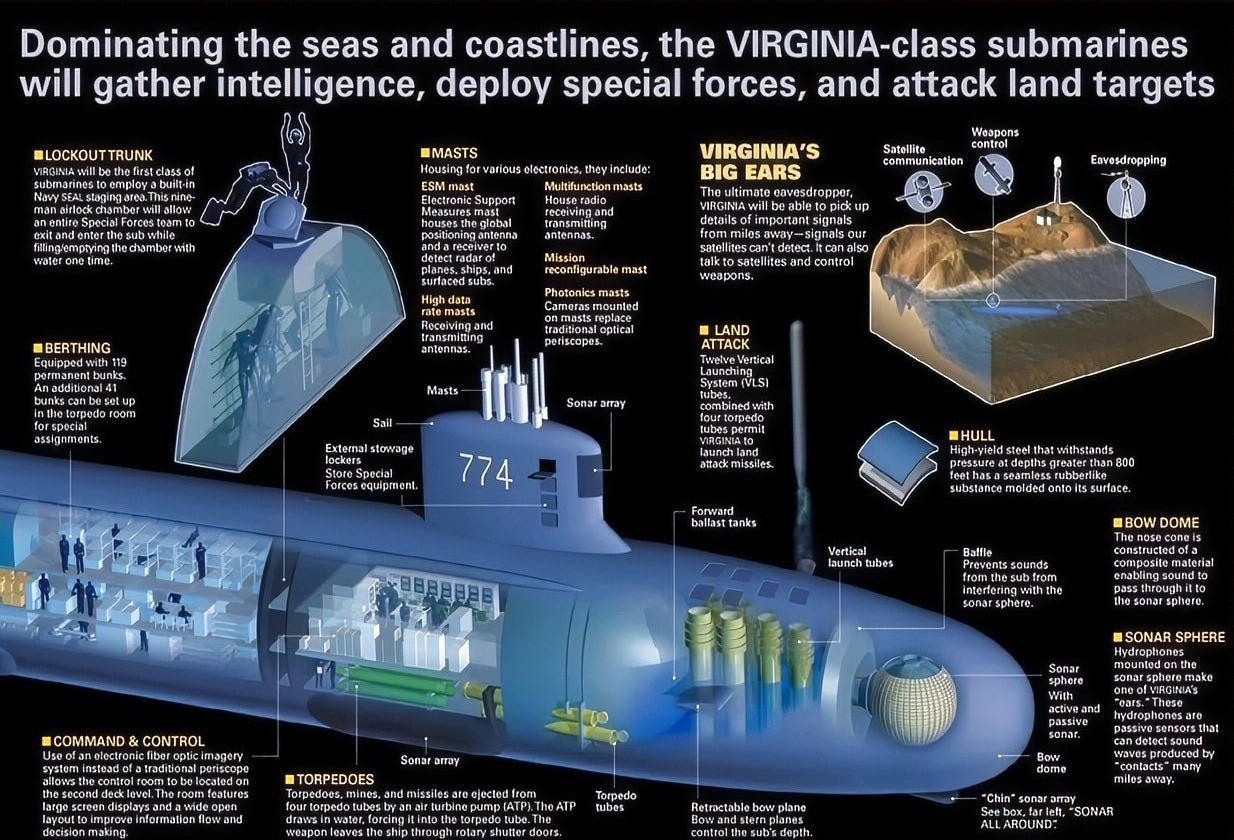Trump Reaffirms AUKUS. Now Comes the Hard Part.
Now that President Trump has completed his AUKUS review and reaffirmed the deal, the question moves to fulfillment: can the U.S. expand submarine production fast enough?
Don’t miss our important Deep Dive on why the new Afghan-Pakistan war matters.
NOTE: This week, Donald Trump and Australian Prime Minister Anthony Albanese reaffirmed the AUKUS deal to provide Australia with nuclear Virginia-class attack submarines. This came after a lengthy review by the War Department, prompted by (very real) concerns about America’s ability to produce the needed subs.
The meeting also included an expanded commitment — and billions in U.S. investment — to develop Australian Rare Earth Elements production and refining capacity, as the President works steadily to end the Chinese monopoly. This rightly got most of the headlines. But AUKUS is of equal importance.
An essential part of Donald Trump’s foreign policy is to stand up allies as true partners, not dependents. This is exactly why he’s pushed them to meet and expand their defense spending commitments, as well as their domestic defense industries (not neglecting to buy arms from U.S., of course).
Net effect? The U.S. will still possess the world’s largest, most powerful military. But key allied forces will be meaningful adjuncts to it, a foreign “National Guard” if you will, to be called up in time of mutual need. A strengthened German or Polish Army greatly reduces European dependence on U.S. power, especially in times when America might be engaged elsewhere. Likewise, a resurgent Japanese Navy creates meaningful problems for any potential Chinese threat, especially an invasion of Taiwan, and does so long before U.S. forces could reasonably be expected to arrive on the scene.
Selling F-14s to Iran in the 1970s proved we don’t want our best stuff to go to just anybody. But Australia is not just anybody: it’s a crucial, faithful, long-term ally whose ability to meaningfully contribute to Indo-Pacific defense is an enormous net gain.
The only downside is the atrophied U.S. industrial base, which can currently only barely produce enough for ourselves of the sort of submarines we’ve agreed to sell the Aussies.
That’s a capacity failure, one which can and must be rectified. Donald Trump is committed to doing just that, and certainly not only for shipyards. Still, the AUKUS deal poses some problems, and the Administration has placed it under review.
The Rod Martin Report strongly endorses going forward with AUKUS, in part through a crash expansion of U.S. shipbuilding capacity fully consistent with stated Administration plans. The value of the AUKUS deal — to strengthen the alliance, to improve regional security and deterrence vs. our most dangerous foreign adversary, and to encourage greater defense integration with the other members of The Quad (particularly India) — is of vital, indeed unique, importance.
Still, America’s ability to produce the needed submarines is entirely lacking at present. A crash program to expand shipyard capacity is desperately needed. Andrew Latham elaborates below. — RDM
The AUKUS Submarine Gamble
by Andrew Latham
October 22, 2025
While the U.S. has reaffirmed its commitment to providing nuclear-powered submarines to Australia under AUKUS, very real questions remain as to whether America’s fragile industrial base can actually deliver.
The U.S. Navy already struggles to produce the two Virginia-class submarines needed annually for its own fleet, managing only about one per year.
Transferring three to five Virginia-class boats to Australia, as planned, without a massive surge in shipyard capacity and skilled labor, will create a dangerous shortfall for the U.S. Navy precisely when China is expanding its own fleet. AUKUS’s success hinges entirely on rebuilding America’s submarine industrial might.









